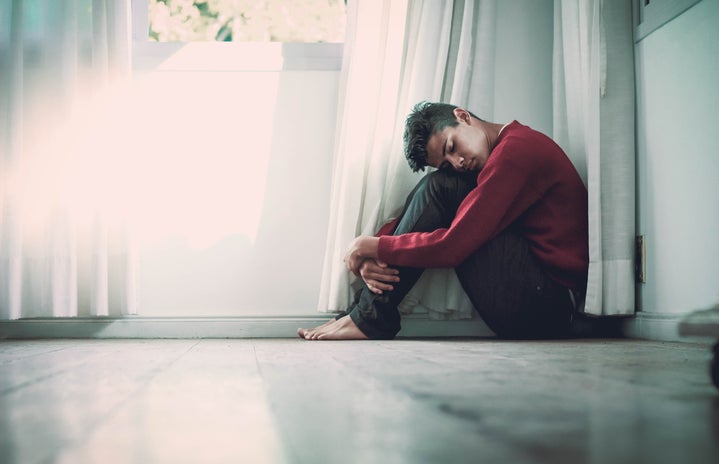For too long, men have been taught to handle their emotions by withholding their tears with stoicism and self-reliance. But the cultural belief that crying is synonymous with weakness has long been refuted by the scientific community. We now recognize that crying not only increases attachment and intimacy among peers, but has also proven to be biologically necessary.
However, this undeniable reality clashes with the outdated cultural standard for what it means to be a man. This stigma encourages repressive coping, more commonly known as the “bottling up” of emotions for the preservation of self-image, which can lead to a weakened immune system, hypertension and heart disease.
In fact, psychologists suggest that crying releases both endorphins and oxytocin, which chemically ease emotional pain and make the body feel physically better after experiencing high-stress situations. This norm is a misguided attempt to encourage the display of synthetic strength instead of fostering a safe environment for a catharsis to run its natural course and allow for genuine healing.
Doing so inhibits them from emotional maturity, from understanding their emotions, recognizing what triggers them and developing productive ways to handle it.
It’s no wonder that statistically, men are three times more likely to commit suicide than women. So much so that suicide is the leading cause of death for men under the age of 45.
We can change these patterns for future generations by creating an open dialogue about emotional understanding from a young age and provide young men with the tools to develop healthy coping mechanisms and open communication.
We can do this by taking phrases like “man up” or “be a man” out of our everyday vocabulary. We can listen more and speak less — not just to formulate our response — but with the intention of genuinely understanding each other.
By offering young boys a platform of open-armed compassion, free of the stigmatized shame around vulnerability, we can breed a generation of men who better understand their own emotional needs, and who can show empathy for the needs of others.
In a world rich with division and multidimensional hardship, we deserve to demonstrate the same compassion for ourselves as we do for others.
We must award ourselves the permission to cry. To take a moment and feel everything, all at once, so that we can then put it down and move forward with an understanding of our suffering. This is the only way we can genuinely begin healing.
Pain isn’t gender-specific, and the way we cope with it shouldn’t be either.


